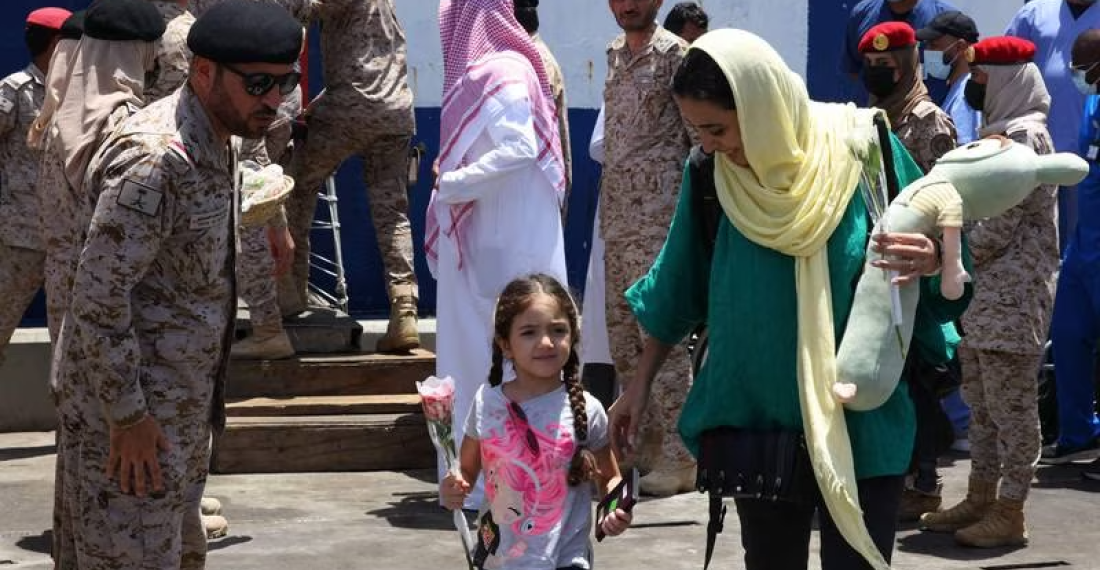Iran has thanked Saudi Arabia for helping its citizens in Sudan evacuate across the Red Sea to the Saudi port city of Jeddah.
65 Iranians were among around 1,900 people evacuated from Sudan to Saudi Arabia on Saturday (29 April) as fighting between the Sudenese army and the rival paramilitary group, the Rapid Support Forces, entered its third week.
In a statement, the Iranian Foreign Ministry spokesman Nasser Kanaani said, "we have seen effective co-operation and assistance from Saudi Arabia that deserves appreciation and gratitude." He added that plans were being made to bring the Iranian nationals home to Iran.
Hassan Zarnegar Abarghoui, one of four Iranian diplomats waiting to receive the citizens at the King Faisal Naval Base in Jeddah, said his government was grateful for the "humanitarian co-operation" shown by the Saudi authorities.
Sudan crisis puts Iran-Saudi Arabia relations to the test
The evacuation of a small number of Iranian citizens to Saudi Arabia has put thawing relations between Riyadh and Tehran to the test, with successful results.
The two regional rivals, having had no diplomatic relations since 2016, struck a deal to normalise relations, re-open embassies, and re-start flights in Beijing on 10 March.
The deal came among several other rapprochements between different countries in the Gulf region.






